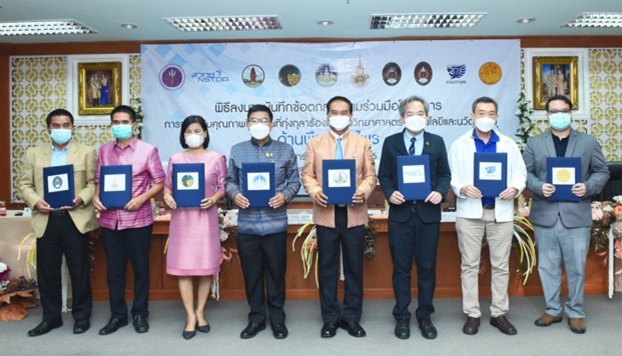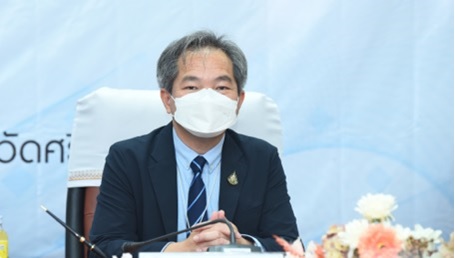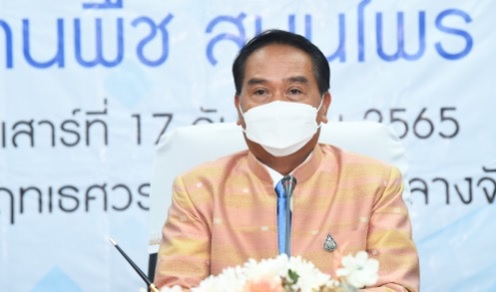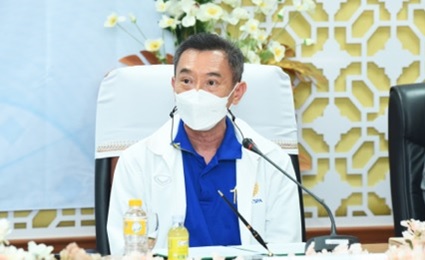An MOU signing ceremony was held among NSTDA, three northeastern provinces, local universities and enterprises at Sisaket City Hall on 17 September 2022. The partnership aims to bring the production system and quality of medicinal plants to meet the standards and to facilitate market-oriented herbal farming in Thung Kula Ronghai. The pilot project will focus on three provinces - Sisaket, Roi Et and Maha Sarakham and three herbal plants, namely ginger, plai (Zingiber montanum) and andrographis (Andrographis paniculate).

Participating in this initiative are NSTDA, the provincial administrative offices of Sisaket, Roi Et and Maha Sarakham, Sisaket Rajabhat University, Rajabhat Maha Sarakham University, Rajamangala University of Technology Isan, Osotspa Public Company Limited and Kuilimhung Prachya Company Limited. Under this project, NSTDA and universities will provide knowledge, technology and innovation to medicinal plant growers to improve the production quality to meet industry standards and connect growers to buyers to support market-oriented farming. Medicinal herb farmers are expected to earn better and more stable income through enhanced production system and improved market access.

In his remarks, NSTDA President Prof. Dr. Sukit Limpijumnong revealed that Thailand has recorded more than 10,000 medicinal plant species and 15.5% of these species are used in various industries, including pharma, cosmetic and food & beverages. Before the pandemic hit, the Thai herbal medicinal products market was valued at THB 52 billion. NSTDA’s research activities for herbal industry encompasses the creation of knowledge and technology for both upstream and downstream players, including plant breeding, tissue culture and bioactor technology for mass propagation of pathogen-free medicinal plants, biocontrol production and utilization for organic farming, nanoemulsion technology for herbal products, medicinal plant database, as well as analytical services and product testing.

NSTDA together with local universities will transfer knowledge and technology to medicinal plant growers and communities to bring their production system and quality to applicable standards and meet buyers’ requirements. Furthermore, industry players are brought in to connect with growers in order to establish market-oriented agricultural production. The pilot project will be launched in three provinces - Sisaket, Roi Et and Maha Sarakham and focus on three herbal plants, namely ginger, plai (Zingiber montanum) and andrographis (Andrographis paniculate). A total of 497 growers have signed up to the project. “This initiative follows the concept of Bio-Circular-Green Economy (BCG) national agenda to drive sustainable grassroots economic growth based on the quadruple helix model that promotes university-industry-government-public collaboration,” said Prof. Sukit.

Sisaket Provincial Governor Mr. Wattana Phutthichat provided a landscape of herbal plant production in Sisaket. A total of 317 rai (50 ha) farmland in Sisaket is dedicated to medicinal plant cultivation with 256 growers. Herbal plants grown in Sisaket – such as ginger, ginger, plai (Zingiber montanum), andrographis (Andrographis paniculate), turmeric (Curcuma longa) and fingerroot (Boesenbergia rotunda) – are mainly supplied to Huai Thap Than Hospital for the traditional medicine production and to Khun Han Hospital and Benchalak Chaloem Phrakiat Hospital for the manufacturing of dried medicinal plant, herbal compress balls and cosmeceutical products.

Osotspa Chief Supply Chain and Digitization Officer Dr. Viwat Krisdhasima remarked that his company uses high quality herbal plants in its three products: beverages (energy and functional drinks), personal care products and health products. The company is pleased to take part in this initiative that will not only raise the quality of medicinal plants, but also build capacity of farmers, support grassroots economy and create sustainability.
